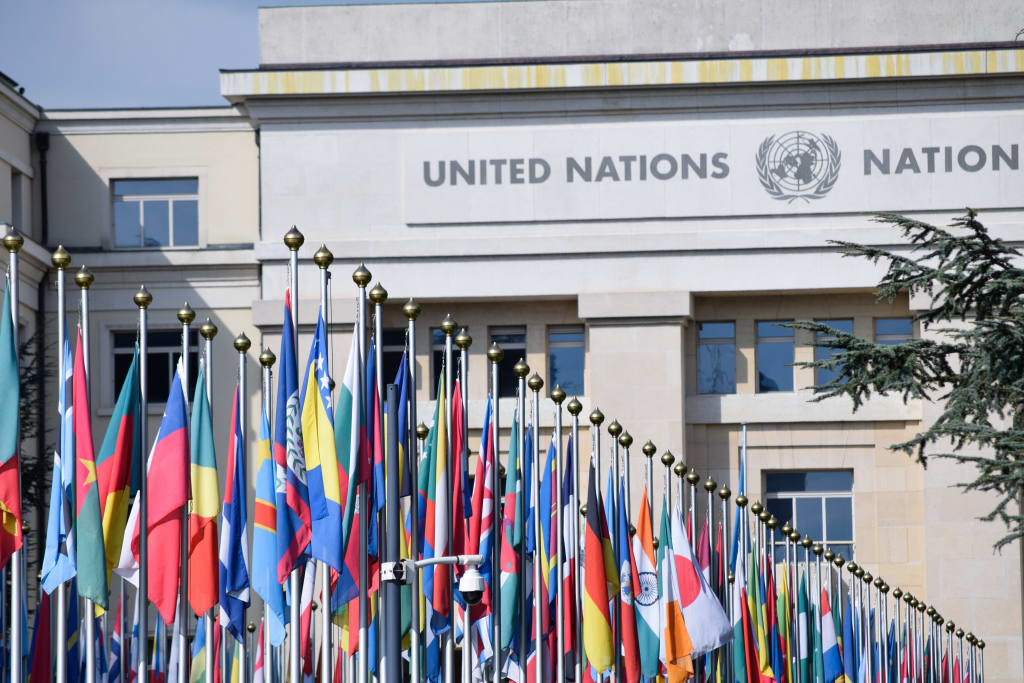
In the aftermath of the devastating Second World War, the international community yearned for a new era marked by peace, collaboration, and mutual understanding. The horrors of the war underscored the urgent need for a platform where nations could come together to discuss common challenges, prevent conflicts, and promote human rights. This aspiration gave birth to the United Nations (UN), a beacon of hope that aimed to foster global cooperation and solidarity.
In the historic San Francisco Conference in 1945, representatives from 50 countries convened to draft the United Nations Charter. Envisioned as a successor to the League of Nations, the UN aimed to promote peace and security, encourage friendly relations among nations, and address humanitarian issues. The preamble of the Charter articulated the organization's commitment to "save succeeding generations from the scourge of war" and to reaffirm faith in fundamental human rights.
The structure of the UN reflected a commitment to inclusivity. The General Assembly, where each member state had an equal voice, served as a forum for open dialogue. The Security Council, comprising both permanent and rotating members, held primary responsibility for maintaining international peace and security. Over the years, specialized agencies, programs, and funds were established to address specific global challenges such as health, education, and development.
One of the most prominent features of the UN's work has been its peacekeeping missions. As conflicts erupted around the world, the UN took on the responsibility of deploying peacekeepers to maintain stability, protect civilians, and facilitate the political process in post-conflict regions. Notable missions include those in Cyprus, the Middle East, and the Balkans. These endeavors underscore the UN's commitment to preventing the recurrence of violence and fostering a conducive environment for long-term peace.
The UN has played a pivotal role in addressing humanitarian crises and promoting sustainable development. Agencies like UNICEF, the World Food Programme (WFP), and the United Nations Development Programme (UNDP) have worked tirelessly to alleviate poverty, improve health outcomes, and empower communities worldwide. The Millennium Development Goals (MDGs) and subsequently the Sustainable Development Goals (SDGs) have provided a comprehensive framework for international efforts to eradicate poverty, ensure access to quality education, and combat climate change.
While the UN has made significant strides, it has faced its share of challenges and criticisms. The structure of the Security Council, with its five permanent members possessing veto power, has been a subject of contention. Critics argue that this setup perpetuates power imbalances and limits the organization's ability to respond effectively to emerging threats.
The UN's role in preventing genocides and mass atrocities has also been scrutinized. Instances like the Rwandan Genocide and the Bosnian War revealed shortcomings in the UN's capacity to intervene decisively in the face of widespread human rights abuses. These failures prompted introspection and led to the establishment of the Responsibility to Protect (R2P) principle, emphasizing the international community's responsibility to prevent and halt mass atrocities.
As the world grapples with the existential threat of climate change, the UN has emerged as a key player in global efforts to address environmental challenges. The Intergovernmental Panel on Climate Change (IPCC) and the annual Conference of the Parties (COP) gatherings provide platforms for scientific assessments and negotiations on climate-related policies. The Paris Agreement, negotiated under the auspices of the UN Framework Convention on Climate Change (UNFCCC), marked a significant milestone in the international community's commitment to combatting climate change.
A crucial aspect of the UN's work has been its dedication to promoting women's rights and gender equality. The Convention on the Elimination of All Forms of Discrimination Against Women (CEDAW) and the establishment of UN Women underscore the organization's commitment to addressing gender-based inequalities. Efforts to empower women economically, politically, and socially have gained momentum, recognizing that sustainable development is contingent upon the full participation of all members of society.
Global Response to Health Crises
The UN has played a vital role in coordinating global responses to health crises. The World Health Organization (WHO), a specialized agency of the UN, has been at the forefront of efforts to combat epidemics and pandemics. The response to the HIV/AIDS epidemic, the fight against malaria, and, more recently, the coordinated efforts to address the COVID-19 pandemic underscore the UN's role as a crucial coordinator of international health initiatives.
As the world evolves, the UN faces new challenges that demand innovative and collaborative solutions. The rise of cyber threats, the impact of disruptive technologies, and the potential consequences of geopolitical tensions pose complex challenges that require a collective response. The UN's ability to adapt to these emerging issues will be crucial in ensuring its continued relevance.
The rise of populist movements and nationalist sentiments in various parts of the world has also tested the foundations of international cooperation. The UN, built on the principles of multilateralism and collective action, faces the challenge of navigating a global landscape marked by shifting political dynamics.
The United Nations, born out of the collective will to prevent future global conflicts and promote shared values, stands as a testament to the potential for international cooperation. Over the decades, it has evolved into a multifaceted organization addressing a myriad of global challenges. From peacekeeping missions to humanitarian aid, climate action to gender equality, the UN's impact is felt across continents and cultures.
While it grapples with criticisms and navigates complex geopolitical realities,
the UN remains a beacon of hope. Its ability to adapt, innovate, and foster collaboration among nations will determine its effectiveness in addressing the pressing issues of the 21st century. As the world continues to change, the United Nations stands at a crossroads, ready to embark on a new chapter in its mission to build a better, more united world.
\/
\/
\/
The above content is provided for informative purpose only .
For more content kindly support ME
About the Creator
Akash
Every additional piece of content you learn contributes to broadening your perspective and increase your expertise. The more you read, the more you learn, and the more equipped you become to navigate the complexities of the world around you






Comments
There are no comments for this story
Be the first to respond and start the conversation.